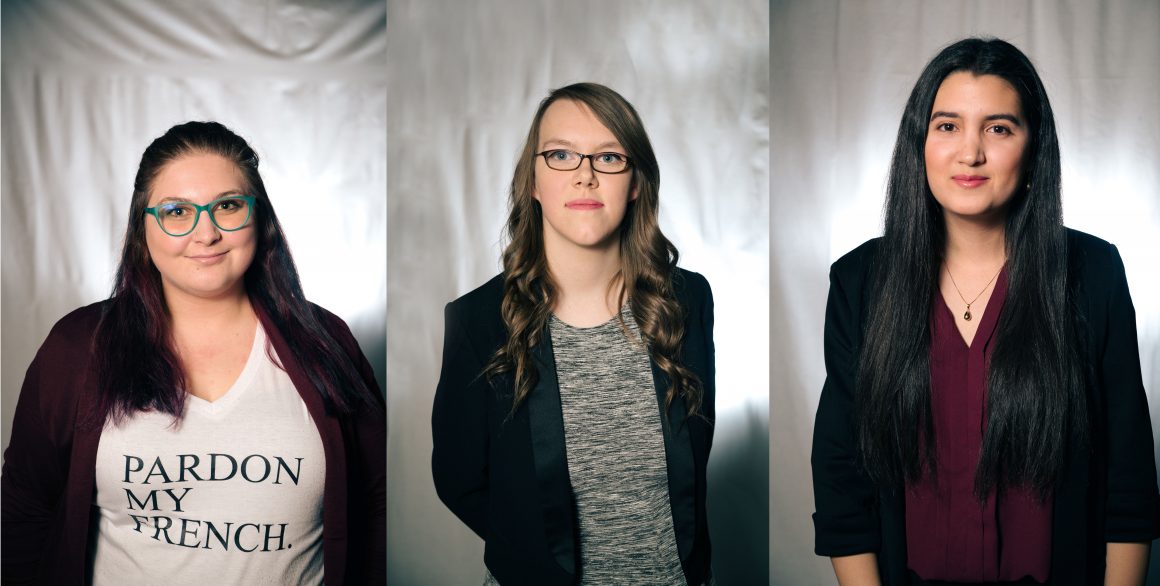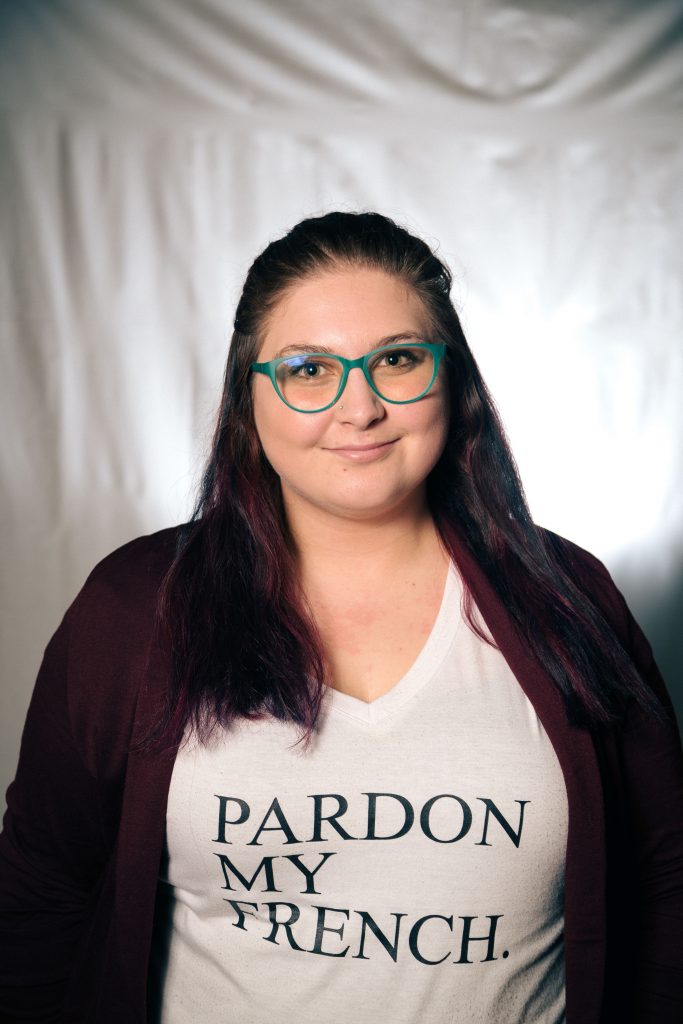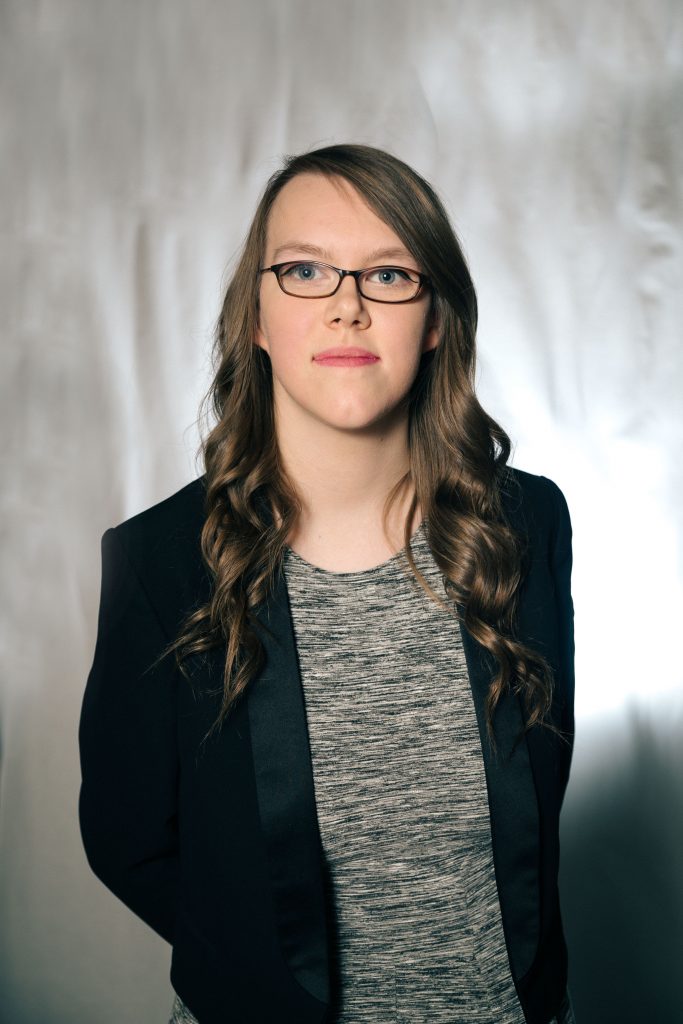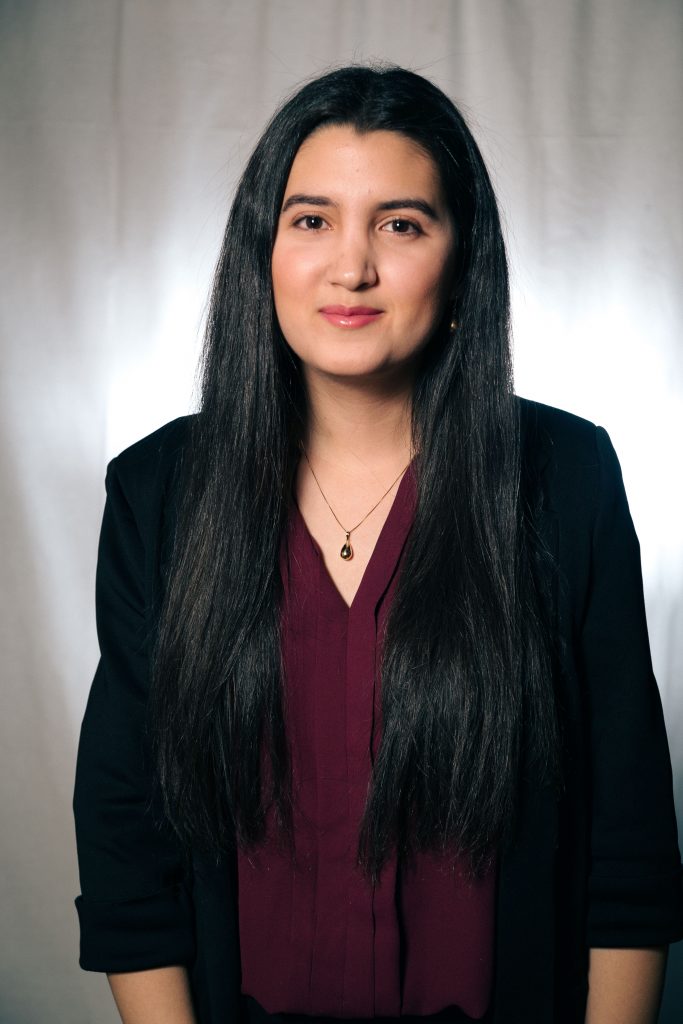
SU election supplement 2017: vice-president academic
[dropcap style=”inverse”]E[/dropcap]very year during reading week, the Gauntlet puts together our Students’ Union election supplement to inform students on who is running, what they plan to do if elected and who we think is best for the job.
We invite all candidates vying for executive positions to our office — after the one time every year that we actually clean it — for a five-minute platform pitch and a 10-minute question and answer session. A panel of Gauntlet staff picks apart the platforms and grills candidates on some of the key issues they would face if elected.
Last year, the MacHall ownership dispute between the SU and the University of Calgary demonstrated the need for strong student government. The dispute — and the ensuing lawsuit — was inherited by this year’s Students’ Legislative Council and will be passed on to whomever is elected this March. The failure of the injunction application this year and the resulting loss of control over roughly $1.9 million in MacHall-based revenue puts the incoming SLC in a difficult position. U of C students need competent student leaders now more than ever to address the MacHall ownership issue and work in the interest of students.
We know the election period can be annoying. Posters cover every possible inch of wall space and costumed candidates invade your classes to beg for votes. Student elections can seem juvenile and meaningless, but their outcomes are still significant. The SU’s decisions and policies affect the student body as a whole, whether it’s fighting for tuition fee regulation or keeping country music out of Bermuda Shorts Day. It is crucial we elect capable officials who have our best interests at heart.
Since you can’t properly judge a candidate on an outdated meme poster or a 90-second classroom pitch, the Gauntlet is here to inform you of the candidates’ qualifications and platforms. Once you’ve read our reviews, look for our panel’s endorsements on the last page. These are the candidates we feel would do the best job if elected based on their interview, platform and previous experience. But don’t just take our word for it. Every candidate’s platform is on the SU website, and most candidates make themselves available during the campaign period if you have any questions.
And of course, don’t forget to vote March 7-9. You can vote online through your student centre or in person via ballot boxes in MacHall.
Academic
[hr gap=”15″]
The vice-president academic is responsible for improving the academic experience and promoting undergraduate research. Their job mostly consists of sitting on committees, meeting with various members of university administration and administering programs like the Teaching Excellence Awards and Undergraduate Research Symposium.
Courtney LeBlanc
Courtney LeBlanc delivered her platform succinctly and confidently. Her strong and original ideas coupled with her assurance of maintaining work done by previous Students’ Union executives makes her a viable choice for vice-president academic.
LeBlanc wants to advocate for all departments to post course outlines of previous classes online, as many students read previous outlines to see what they’re getting into. LeBlanc cited past discussions within the Faculty of Arts Teaching and Learning Committee about this objective to prove the concept is feasible. However, these discussions would need to happen with other faculties for this goal to be implemented. If accomplished, this would benefit every student.

“I’d rather utilize my soft power and create those relationships.”
Her second point is advocating for faculties to list when courses will next be offered so students can plan for graduation. Though she admitted that this goal is idealistic — planning far into the future may not be feasible for many courses — she did note that other Canadian universities list when a course will next be offered, meaning there is precedent.
LeBlanc also wants to work on getting credits from other universities to transfer over to the U of C. Currently, this can be a six-month ordeal and LeBlanc wants to work with Enrolment Services to streamline the process. She wants to get more courses listed in databases of the Alberta Council of Admissions and Transfers. This would actually be very difficult to execute internally as the registrar’s office is complex and such a project would involve convincing other universities to speed up their own transfer credit processes.
In continuing with the work of her predecessors, LeBlanc wants to expand funding for the Undergraduate Research Symposium (URS) and push to promote the use of Open Educational Resources (OER). Though LeBlanc’s platform is not very research-oriented, she plans to build upon her previous relationships with possible donors for URS. As for OER, she hopes to take notes from other universities who use these resources to see how they could be used at the U of C. She also hopes to make departments already aware of the funding in place. However, these statements make the issue seem simpler than what it actually is — if it were this easy, classes would already be using OER.
Building positive relationships with faculties and administration will be key for LeBlanc to achieve her platform. Thankfully, LeBlanc’s exuberant personality and emphasis on “soft power” might make this possible.
Selected Qualifications:
• SU Faculty of Arts representative 2016–17
• Peer Helper with various Leadership and Student Engagement programs
Tina Miller
With an attainable platform and a strong work ethic, Tina Miller is a sound choice for vice-president academic. She understands academic issues faced by students and already has the connections needed to accomplish her goals.
Miller’s approach to undergraduate research involves creating a centralized database to provide students with a more direct path into research. The database would also help with grant applications and opportunities to showcase finished projects in poster fairs and symposiums. This hasn’t succeeded in the past, so she has a tough road ahead of her.

“My priority is the first point I put on there, which is the research. It would be valuable across all faculties.”
Also regarding research, Miller wants to offer workshops through the Students’ Union for writing research applications and abstracts. This is a practical idea that could benefit students more immediately than the database.
The SU vice-president academic is the lead organizer of the Undergraduate Research Symposium (URS). Miller has experience with the URS, having sat on the selection committee last year. After recent controversy around URS abstract selection, she said she wants to give students on the selection committee more training, but maintains that the symposium should focus on featuring research that all students can understand.
Miller also wants to make academic advising more accessible to students by creating an online system for scheduling appointments with enrolment services. Other services already have a similar scheduling system and Miller knows exactly who to work with to make this happen. Her other plan — bringing peer-mentoring to more classes — is similarly feasible.
It’s difficult to get professors to commit to Open Educational Resources (OER), but Miller’s ideas seem effective. She wants to encourage instructors to use OER by focusing on modifying existing resources and hopes to convince the university to add use of OER to considerations for teaching awards. She also wants to use existing funding to put more textbooks in reserve at the library. These are concrete and well-thought out ways of making academic resources more accessible to students.
Near the end of her interview, Miller acknowledged the work of her predecessor and said she plans to continue working on issues like changing exam deferral procedures and obtaining a fall reading week. These long-term initiatives are important and it’s good to see them mentioned, even if they aren’t priorities.
Miller’s experience and accomplishments on this year’s Students’ Legislative Council are valuable, but it’s her confidence and encyclopedic knowledge that make her an excellent candidate to take on the vice-president academic portfolio.
Selected Qualifications:
• SU Faculty of Science representative 2016–17
• Leadership and Student Engagment Student Advisory Council
Romina Soudavari
Romina Soudavari is a well-intentioned but unprepared candidate for vice-president academic. While some of her platform points are appealing, Soudavari lacks research on how to achieve most of her goals.
Soudavari’s main platform point is changing exam times from 8:00 a.m. – 10:00 p.m. to 9:00 a.m. – 9:00 p.m. She argued that other institutions such as the University of Lethbridge have implemented similar schedules. She suggested that more exams could be written in empty classrooms to make up for the loss of scheduling time.

“My campaign centres around thoughts and ideas I’ve gotten from students over the years of attending the U of C myself.”
Unfortunately, Soudavari lacked a concrete plan on how she would go about achieving this at the U of C, which is much larger than the U of L. She lacks a solid understanding of administration at the U of C and does not realize that this goal is likely impossible. She also did not know who the current registrar is, proving a lack of preparation.
Another one of Soudavari’s main goals is to have students donate their old textbooks to an open textbook program. However, this showcases a fundamental misunderstanding of how open textbooks work.
Soudavari also wants to host academic events and workshops that help students understand how the U of C operates. While this is a good idea, many academic clubs – including the Society of Undergraduate Economics, Faculty of Arts Students’ Association and Easy Ace – already put on similar events. This could be a strong platform point if she is able to ensure her events are fundamentally different than the ones already put on.
Soudavari’s strongest idea is her plan to implement mid-semester evaluations of teaching assistants. A mid-semester evaluation would help improve levels of instruction before students leave the classes and she suggested feasible outlets such as D2L for this. This platform point has been promised — and has failed — in past years, but Soudavari provides a logical solution.
Another red flag is Soudavari’s understanding of research – or lack thereof. She stated that outside the Faculty of Science, other disciplines at the U of C are not very research-focused. This is a misguided view of the university’s academic priorities.
Soudavari is well-intentioned, but lacks important knowledge of the vice-president academic’s role, including an understanding of the committee work required. More thorough research and additional experience on campus would make Soudavari a much stronger candidate if she wants to run in the future.
Selected Qualifications:
• Vice-president administration with the Mustard Seed U of C chapter
• Taught English overseas
For more coverage of the 2017 Students’ Union election, click here. Our next election article, featuring profiles of the presidental candidates, will go online at 9:00 a.m. on March 2. And come out to our Great Presidential Debate on Thursday March 2 at 3:00 p.m. in the Cassio Room to watch the presidential candidates literally fight each other. It’s gonna be great. More info here.
